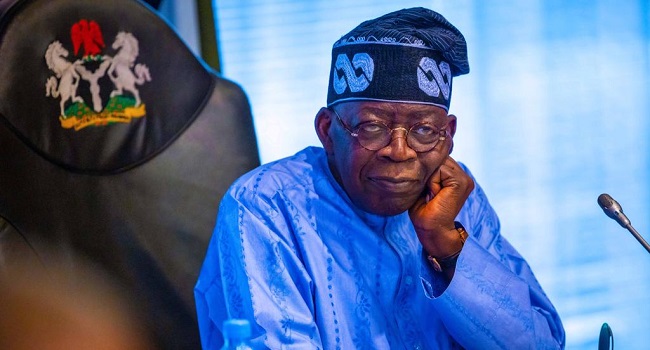The Nigerian government’s deviation from the established January-December budget cycle has sparked considerable concern among economists, who warn of potential negative impacts on investor confidence and economic stability. For the first time in recent years, Nigeria entered 2025 without an approved budget, as President Bola Tinubu’s proposed N49.7tn budget for 2025, submitted in December 2024, remains under legislative review. This delay contravenes the Fiscal Responsibility Act 2007, which mandates budget presentation at least three months prior to the new fiscal year. Experts argue that this disruption creates uncertainty in the investment landscape, hindering planning and potentially discouraging both domestic and foreign investment. The link between the proposed budget and pending tax reform bills further complicates the situation, suggesting a strategic interdependence that could prolong the budget approval process.
Economists emphasize the importance of adhering to the regular budget cycle, citing the successful implementation under the previous administration as a benchmark. The consistent and timely presentation of the budget under former President Muhammadu Buhari provided a predictable framework for economic activity, fostering stability and encouraging investment. The current delay, with the budget presentation occurring just two weeks before the end of the preceding year and subsequent legislative recess, introduces an element of unpredictability. The extended timeline for budget approval, with the earliest possible date for the joint appropriation committee report being January 31st, 2025, exacerbates the uncertainty. This departure from established practice raises concerns about the government’s economic management and the potential for ad-hoc decision-making in the absence of a formalized budget.
The uncertainty surrounding the budget approval timeline is further compounded by the connection to proposed tax reforms. President Tinubu introduced a series of tax reform bills in October 2024, aiming to modernize Nigeria’s tax system and boost revenue generation. These bills, which cover areas such as tax administration, revenue service establishment, and the formation of a joint revenue board, are seen as integral to the 2025 budget’s financial projections. The interlinking of these legislative efforts creates a complex scenario where the budget’s passage appears contingent on the successful enactment of the tax reforms. This interdependence introduces a layer of complexity and potential delay, potentially prolonging the period of budgetary uncertainty.
The delayed budget approval process has significant implications for economic planning and investor confidence. The absence of a finalized budget creates an environment of uncertainty, making it difficult for businesses to make informed investment decisions. The lack of a clear fiscal framework can deter both domestic and foreign investors, hindering economic growth and development. Furthermore, the delay disrupts the normal flow of government spending, potentially impacting essential services and public projects. The absence of a budget also creates an environment conducive to ad-hoc spending decisions, lacking the transparency and accountability associated with a formalized budgetary process.
The proposed 2025 budget, themed “Budget of Restoration: Securing Peace, Rebuilding Prosperity,” outlines ambitious revenue and expenditure targets. The government projects total revenue of N36.35tn, predicated on improved non-oil revenue streams, including enhanced tax collection and revenue from government enterprises. Oil revenue projections are based on a benchmark crude oil price of $75 per barrel, a production target of 2.06 million barrels per day, and an exchange rate of N1,500 per USD. Total expenditure is projected at N49.7tn, with substantial allocations to key sectors. The resulting fiscal deficit of N13.39tn (3.96% of GDP) is planned to be financed through borrowing and public-private partnerships. These figures, however, remain subject to legislative approval and the broader economic context, which is itself impacted by the delayed budget process.
The delay in the budget approval process underscores the importance of adhering to established fiscal timelines and ensuring a transparent and predictable budgetary process. The current situation not only creates uncertainty for investors but also raises concerns about fiscal discipline and the potential for ad-hoc spending decisions. The linking of the budget to significant tax reforms further complicates the situation and highlights the need for a streamlined and efficient legislative process. Addressing these concerns and restoring confidence in Nigeria’s economic management requires a swift resolution of the budget impasse and a commitment to adhering to the established January-December budget cycle in the future. This will provide the necessary stability and predictability to support economic growth and attract investment.


